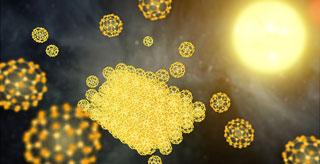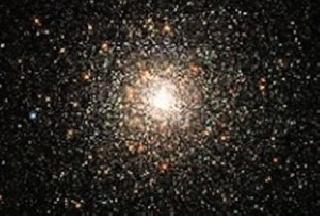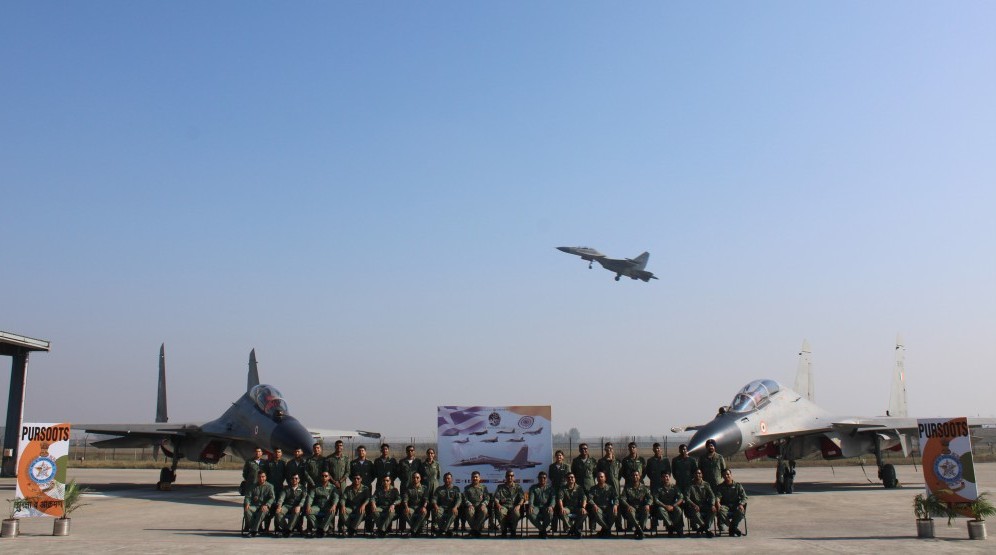
NASA's Spitzer Space Telescope has detected the solid form of buckyballs in space for the first time. Image credit: NASA/JPL-Caltech.
WASHINGTON (BNS): Astronomers, for the first time, using NASA's Spitzer Space Telescope have discovered buckyballs in solid form in space.
Scientists using Spitzer detected tiny specks of matter, or particles, consisting of stacked buckyballs. They found them around a pair of stars called "XX Ophiuchi," 6,500 light-years from Earth.
"These buckyballs are stacked together to form a solid, like oranges in a crate. The particles we detected are miniscule, far smaller than the width of a hair, but each one would contain stacks of millions of buckyballs," Nye Evans of Keele University in England, was quoted as saying in a NASA news report.
Formally named buckminsterfullerene, buckyballs are named after their resemblance to the late architect Buckminster Fuller's geodesic domes.
They are made up of 60 carbon molecules arranged into a hollow sphere, like a soccer ball. Their unusual structure makes them ideal candidates for electrical and chemical applications on Earth, including superconducting materials, medicines, water purification and armour.
Buckyballs were detected in space for the first time by Spitzer in 2010 but they were all in gas form.
 Previous Article
Previous Article Next Article
Next Article













The Indian Air Force, in its flight trials evaluation report submitted before the Defence Ministry l..
view articleAn insight into the Medium Multi-Role Combat Aircraft competition...
view articleSky enthusiasts can now spot the International Space Station (ISS) commanded by Indian-American astr..
view article